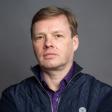Sociālantropologi piedalīsies Eiropas Sociālo antropologu asociācijas konferencē Spānijā
2024. gada 23.–26. jūlijā Barselonā norisināsies Eiropas Sociālo antropologu asociācijas (EASA) 18. biennāles konference Doing and Undoing with Anthropology, kurā piedalīsies vairāki projekta (Re)moving Ties pētnieki.

Asoc. prof. Klāvs Sedlenieks kopā ar pētnieci Mari Korpelu (Mari Korpela) no Tamperes Universitātes organizē paneli To tie or not to tie: skilled professionals, transnational mobility, family and friends [Anthropology and Mobility (AnthroMob)]. Panelī tiks apskatīta darba mobilitātes ietekme uz personīgo dzīvi un attiecību uzturēšanu, un to, kā antropoloģiskās metodes var padziļināt zināšanas par šo tematu. Asoc. prof. K. Sedlenieks panelī uzstāsies ar prezentāciju Mobility and the tie engineering.
Starptautiskajā konferencē piedalīsies arī projekta vecākā pētniece Ieva Puzo, kura uzstāsies ar prezentāciju Sometimes there is more to life than science: (Im)mobility decisions among international scholars in Japan and Latvia.
- Tēzes
Mobility and the tie engineering
In this presentation I invite to look at the process of geographical relocation from the perspective of relations by introducing a concept of “tie engineering”, i.e., a conscious or semi-conscious effort to manipulate human ties through varying physical/geographical distance among the target group. In other words: people are put together or drawn apart in such a way that the ties among them are either strengthened or severed. Such tie engineering is incorporated in policies of various institutions and are more often than not based on the assumption that weak ties (vid. Granovetter) should be strengthened and strong ties must be weakened. There are some cases though (e.g., anthropological fieldwork) where the opposite may be the case, but also to a certain degree. The institutionalised tie engineering does not exist separately from the ideas circulating among the general public and the people that are subjected to tie engineering. So that while there is a purposeful effort at the level of institutional policies, there is no less purposeful effort at the individual and personal level. The empirical material that illustrates the processes of tie engineering come from interviews with mobile professionals in three areas: academic, diplomatic and international organisations. I demonstrate that depending on the institutional goals the tie engineering practices may vary, but often result in similar personal problems across the board.
“Sometimes there is more to life than science”: (Im)mobility decisions among international scholars in Japan and Latvia
This contribution examines the tension between two contradictory factors shaping the (im)mobility of researcher workers: the demands of the dominant regimes of knowledge production and the importance of building and maintaining close relationships. At the discursive level, the “ideal” researcher is often portrayed as someone unencumbered by close personal ties and dedicating their life to science. The lived reality for many scholars, however, is quite different, as they struggle to balance their work and personal lives.
Based on semi-structured interviews with international scholars in Japan and Latvia as well as other ethnographic data, I suggest that personal considerations—relationships, kin ties, and the hope of creating them—constitute an important factor for research workers as they make decisions about their actual and potential employment locales. Rather than necessarily prioritizing the potentiality of movements to the “centers” of academic knowledge production, researchers often choose to cease the mobility expected of them by the contemporary regime of knowledge production and instead opt to remain in places significant in terms of personal ties—and places that may enable the creation of new relationships or the maintenance of already established ones. Turning the analytical lens to how mobility decisions are co-made by researchers and people close to them, opens a novel angle for examining the institutional and policy assumptions about academic mobility.
Saistītās ziņas
 Zinātnieku brokastīs RSU rod sadarbības iespējas ar Latvijas Valsts koksnes ķīmijas institūtuPētniecība
Zinātnieku brokastīs RSU rod sadarbības iespējas ar Latvijas Valsts koksnes ķīmijas institūtuPētniecība




